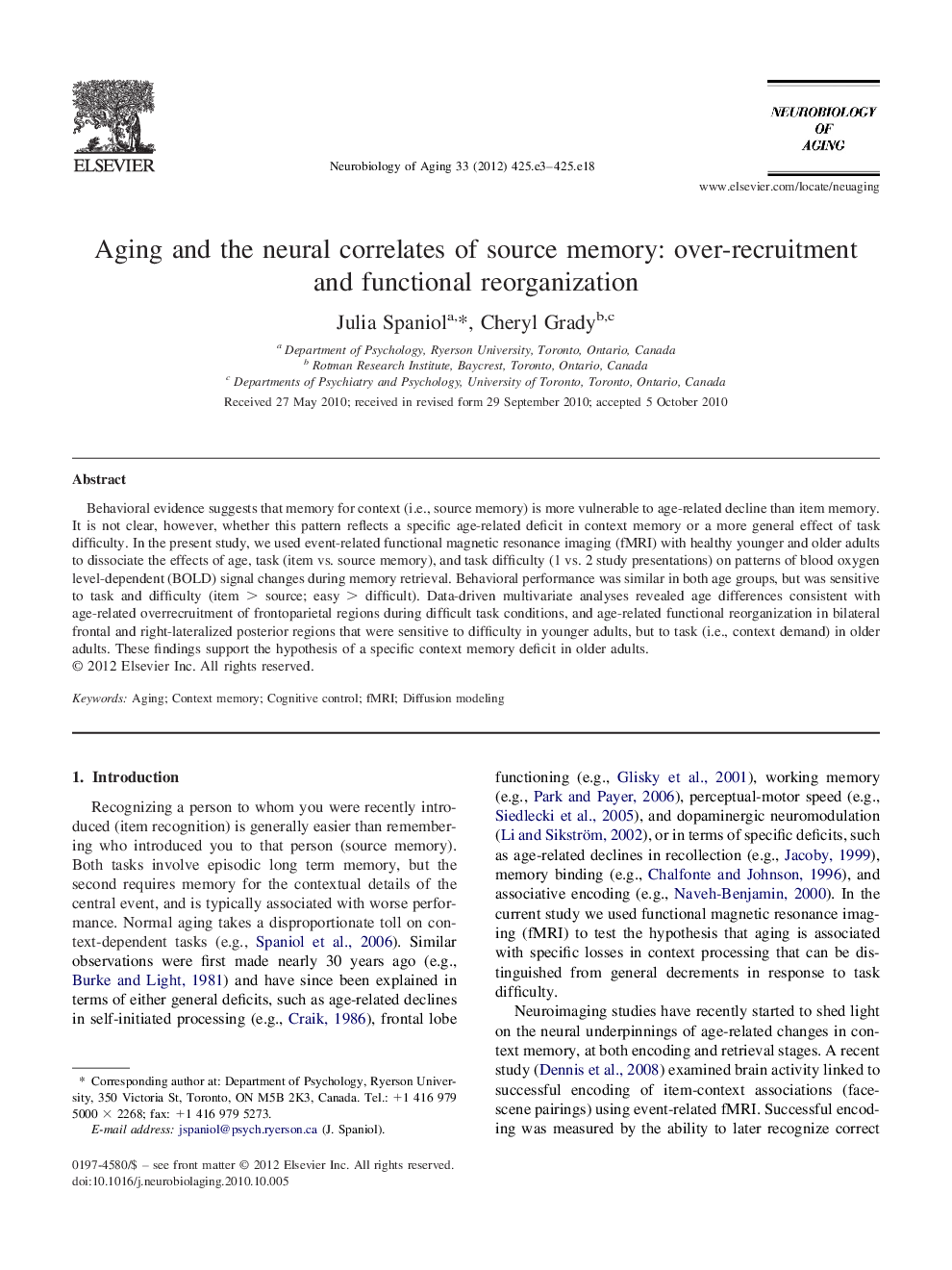| Article ID | Journal | Published Year | Pages | File Type |
|---|---|---|---|---|
| 6809915 | Neurobiology of Aging | 2012 | 16 Pages |
Abstract
Behavioral evidence suggests that memory for context (i.e., source memory) is more vulnerable to age-related decline than item memory. It is not clear, however, whether this pattern reflects a specific age-related deficit in context memory or a more general effect of task difficulty. In the present study, we used event-related functional magnetic resonance imaging (fMRI) with healthy younger and older adults to dissociate the effects of age, task (item vs. source memory), and task difficulty (1 vs. 2 study presentations) on patterns of blood oxygen level-dependent (BOLD) signal changes during memory retrieval. Behavioral performance was similar in both age groups, but was sensitive to task and difficulty (item > source; easy > difficult). Data-driven multivariate analyses revealed age differences consistent with age-related overrecruitment of frontoparietal regions during difficult task conditions, and age-related functional reorganization in bilateral frontal and right-lateralized posterior regions that were sensitive to difficulty in younger adults, but to task (i.e., context demand) in older adults. These findings support the hypothesis of a specific context memory deficit in older adults.
Related Topics
Life Sciences
Biochemistry, Genetics and Molecular Biology
Ageing
Authors
Julia Spaniol, Cheryl Grady,
